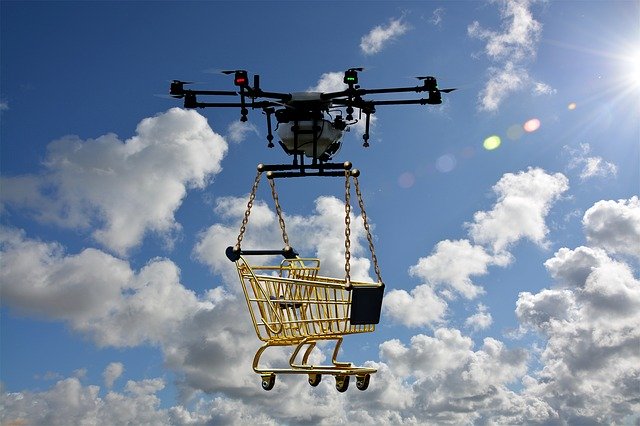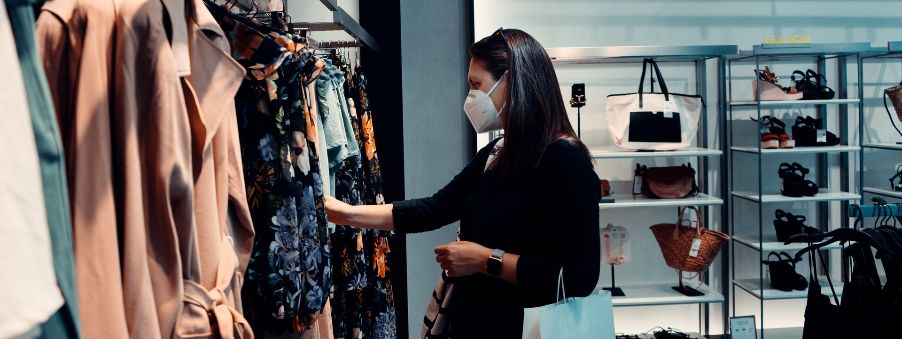Over the past couple of years, the UK retail industry has undergone monumental change, leading to the loss of hundreds of thousands of jobs and the decline of the British High Street. This year, fuelled by the Covid-19 pandemic, the situation has worsened with over 125,000 jobs lost in the first eight months, according to data gathered by the Centre for Retail Research.
However, there are some positive aspects as well. The retail sector does seem to be in a period of growth now that the national lockdown has eased, and although there have been job cuts, some retailers have created thousands of new jobs, especially to keep up with the demand of online sales. We are a nation of consumers. Shopping isn’t just a necessity, but a favourite past-time of ours, so although the retail industry is going through a turbulent period, it will emerge stronger. The retail landscape will transform quicker than it ever has done before, but it will survive.
Difficult and Uncertain Times
The retail industry is a key pillar of the UK economy, contributing £104bn of GVA to the economy in 2019, with the value of retail sales reaching £395bn in 2019, a 3.8% increase from 2018. It is the largest private sector employee, with 1 in 10 people working in retail.
This year, the industry has been seriously affected by the Coronavirus pandemic. Almost 14,000 shops have permanently closed across high streets, shopping centres, and retail parks, with the majority of job cuts occurring at chain stores and big-name brands. For example, M&S revealed 7,000 positions would go as sales plunged, and Debenhams put itself into administration and cut 2,500 positions. Some brands are struggling due to the size of their estates; the combination of high rents and falling footfall has meant larger stores are not as viable as they used to be, causing a move to smaller shop formats. As part of our diverse service offering, RMS is currently assisting with several store closures for one of the country’s biggest retail brands.
Although there have been some successes, for example the Co-operative Food, which is creating 1,000 new jobs, the majority of retailers are under intense pressure. Unfortunately, many retailers ignored the opportunity in the last decade to recast and future-proof their businesses, by making investment in e-commerce capabilities and other technologies. What should have happened organically over several years is now being rushed over a shorter period.

Silver Linings
UK retail sales grew 3.9% on a total basis in August 2020, the third consecutive month of growth for the sector, according to the KPMG-BRC sales monitor. This performance was underpinned by a continued surge in online purchases since the pandemic struck, with online non-food sales up by 42.4% in August 2020. Lockdown appears to have permanently changed some consumers’ shopping habits, with online sales continuing to boom despite shops reopening in June.
It is now essential that suppliers and retailers have a strong e-commerce sales channel. Even retailers such as Aldi, who before the pandemic were adamant that they would never launch an online service, have had to adapt to the new retail landscape. They have entered the world of online commerce and are currently trialling click and collect, a service which has become much more widespread since the outbreak. This goes to show that no company has been exempt from the pandemic; everyone needs to innovate and change if they are to survive. Perhaps the best example of what happens to a big company who doesn’t have an e-commerce channel is Primark. During lockdown they closed completely, and their sales went from £650 million a month to zero, because they were classed as a non-essential store and don’t have the infrastructure to sell online.
The trends of the last few years highlighted how online sales were only going to increase, but Covid-19 has exemplified this. Tesco, who will soon be trialling a drone service, delivered between half a million and 600,000 delivery slots before the pandemic. This year, they have stepped up to the challenge and have since doubled that figure. For customers who are unable to leave their houses to go shopping for essentials, these retailers have become another emergency service, providing a vital service to their communities.

The Future is Here
The last few years in retail have been characterised by retailers preparing for the future; preparing for the big changes that would inevitably come. Well, those changes have happened in a matter of months. The time before 2020 can be classed as ‘Before Coronavirus’, and we now have to deal with this altered world.
Covid-19 has delivered a devastating gut punch to the entire retail industry, and for some brands, it is catch-up time to develop business processes that can deal with the ‘new normal’. For others, they will need to ensure that the innovative ideas already put into practice are future-proof and appeal to their customer’s needs.
RMS is one of the UK’s leading providers of merchandising and retail support staff. We deploy teams of flexible, responsive and highly trained staff, wherever and whenever they’re needed, using flex, our innovative workforce management system.
